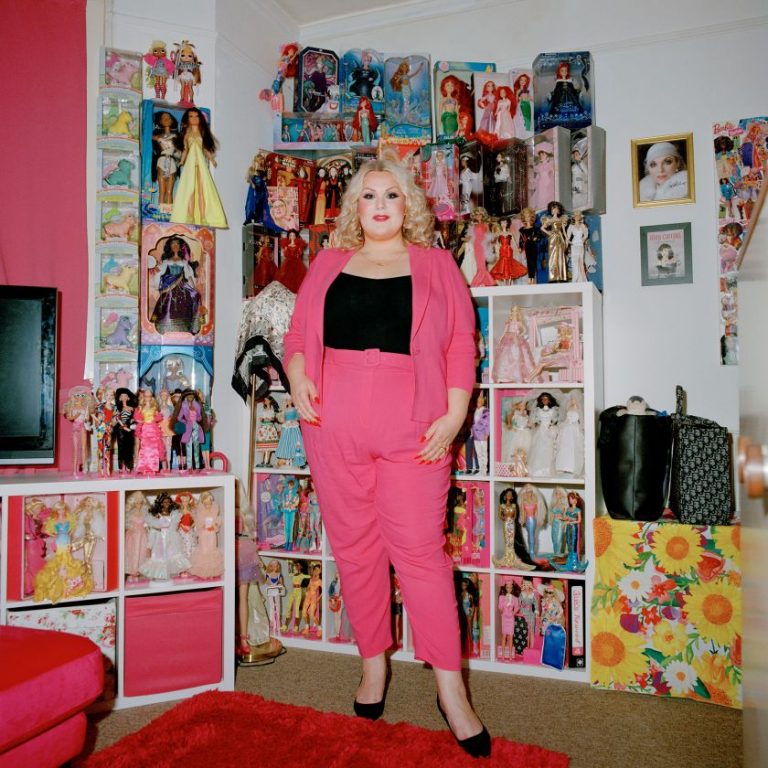In this special essay for our Leadership theme, Jess McGuire, managing partner at ThoughtMatter, shares what it really means to lead as a woman in 2025 – beyond the job titles and headlines into the quiet, complicated, often unseen work of showing up with integrity.
I have a love-hate relationship with the topic of women’s leadership. I’ve read books, articles, studies, and think pieces; if it’s about women in leadership, I’ve probably highlighted it.
‘Lean In’ was the first one that really landed for me. I was a new mom in corporate America, highlighter in hand, convinced I could have it all. Before that, I just wanted to work hard and establish myself in the right design circles. I didn’t want to be seen as anything other than a great designer. No pronouns, no qualifiers, just good work. Today, I don’t want to lean in. Or lean out. “Back out” feels appropriate.
In 2025, I’m not even sure ‘leadership’ is the right word as it implies taking the lead. In my experience, no one really likes a woman who does. What people seem to want is for women to open doors, mentor, guide quietly, and support from the sidelines. Is that leadership? Maybe. But when you’re running a company, making decisions that affect jobs, pushing clients to be bolder, answering to payroll, measuring growth, and assessing impact, it becomes something far more complicated. It becomes a mess of contradictions.
As a woman, I’m expected to be nurturing.
As a mother, I’m expected to be maternal.
As an agency partner, I’m expected to be decisive.
I am all of these things, and sometimes none of them. Depending on the room I walk into. The traits blend and blur into expectations that pull me in every direction. Most writing about women in leadership overlooks this in-between stage. We hear polished success stories. The power quotes. The glossy wins. What gets missed, though, is the low, quiet, often invisible cost of leading as a woman on any given Tuesday. Let me tell you about mine.
I’m on the subway into Manhattan. I’ve spent the ride preparing what I’ll say to the team: another round of changes, another shift in structure. The decisions I’ve made will trigger disappointment, anxiety, and uncertainty. Yet I’ll be the one who pushes them forward. This is a part of leadership that few people really discuss, especially for women. The aftermath. When you walk into the room, say what needs to be said, and then watch the energy shift. Watch people avoid eye contact. Feel the space between you and others grow cold. You can sense the disappointment, the frustration, the distance.
And even though it feels personal, you can’t take it personally. You have to let them feel what they feel. You have to keep moving. Bravery doesn’t always look like taking the stage. It looks like standing in front of your team, knowing they’re angry, knowing you’ve made a hard call, and still choosing to hold steady because you believe in where you’re going, even when it’s hard, even when it hurts.
Over the last five years, I’ve kept the agency lights on through a global pandemic, a racial reckoning, remote-only work, The Great Resignation, the quiet dismantling of DEI, the return-to-office debate, and the looming threat of automation. And all while raising capital, managing payroll, delivering client work beyond expectation, and still showing up to career day at school. That’s leadership. But it’s also something more, especially for women. Because when you’re a woman at the top, your decisions don’t just carry weight; they carry perception. Everyone who’s worked with me during this time probably has a different version of me in their head. That’s not unusual. But when you’re socialized to be liked, because being liked was the safest, smartest path through every room you’ve ever walked into, it adds another layer most people don’t see.
It’s said leaders should focus on being respected, not liked. I understand that logic. But as a girl, a teenager, a woman, a mother, and now a business partner, my ability to move through the world has always been defined by how I was received, not just what I achieved. Respect was never the starting point. Likability was the currency. It got me access. It kept me safe. It gave me space to grow. So when someone says, “Don’t worry about being liked”, I hear male privilege talking. Because most men don’t have to worry that being disliked will make them a target.
For women, being dismissed isn’t just a reputational issue; it can be deeply personal. It can be dangerous.
Nevertheless, I understand the privilege of sitting at the top. I know what it means to have power, responsibility and the intoxication of it, the ability to shape a business, shift a culture, or open a door that might’ve stayed closed. My appetite for risk and change has grown tenfold. And that’s what we need more women to experience. That’s what builds resilience, character, and clarity. That’s when you see the world differently when you’re not just fighting to get in but deciding how things should be done.
Some data suggests when women lead, companies perform better and communities thrive. Still, we’re not where we should be. Even now, women are still measured by different standards: lead with strength but not seem threatening and be direct yet still likeable. The real cost of leadership isn’t just the workload—it’s the constant shape-shifting. The pressure to lead in a way that doesn’t make anyone uncomfortable.
I’ve stopped trying to conform to that version of leadership. I’m more interested in building a different model, one that values presence, integrity, and the way we make space for others. I want the next woman in the room to spend less time managing perception and more time doing the work she’s here to do. I have come to believe that leadership isn’t about being right. It’s about holding the weight. It’s about making decisions despite knowing they will not be applauded. Leadership is about guiding with honesty, not performance. Leadership is about building systems that won’t collapse when you’re not in the room.
After 20 years in this industry and more than three as a partner in a creative studio, I’ve made mistakes. I’ve second-guessed myself. I’ve said the wrong thing, pushed too hard or not hard enough. Some people have walked away with admiration, while others with frustration. Some never want to see me again. That’s the price of leadership, too.
We’ve been taught it’s all about climbing, getting it right, and proving we belong at the top. As I have come to see it, leadership isn’t a destination. It’s a way of moving through the world. Sometimes, it’s about making the call. Sometimes, it’s about saying, I don’t know. And most times, it’s about standing there, flawed, visible, and real, hoping someone learns something from the way you showed up.
I wish someone had told me this: Lead messy. Lead vulnerably. Lead in the way your life demands. Whether that means guiding a team, a movement, or just a child through the chaos of a Tuesday morning.
Forget perfect. It’s a trap. Just make sure you’re all in and doing it your way.










